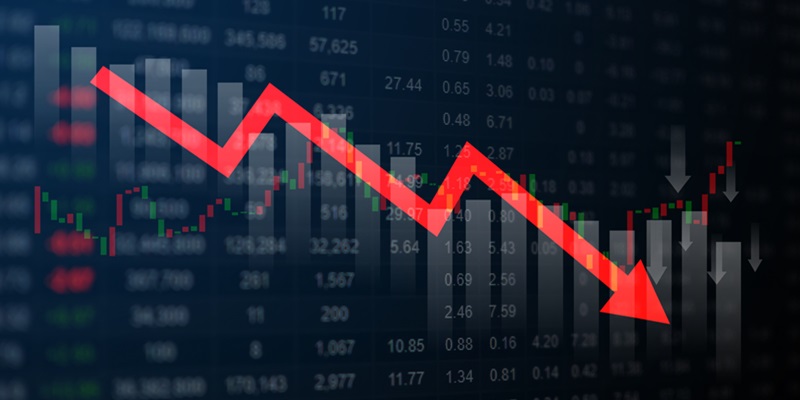Markets are deep in the red this morning. We’re finally getting that correction we’ve been anticipating.
If you’re a Disruption Investor member, I hope you read and acted upon last week’s issue: The Hedging Issue. In it, Chris Wood and I walked through several ways to “buy insurance” on your stock portfolio, in order to blunt losses and preserve the substantial gains we’ve enjoyed.
While we don’t expect a big stock market crash, days like today are a reminder to protect your downside. If you’re not yet a Disruption Investor member, go here to become one.
Now, some perspective on this selloff.
Keep in mind that a handful of mega tech stocks carried the market higher in the first half of 2024.
Now Nvidia (NVDA), Google (GOOG), and Microsoft (MSFT) are all down at least 10%.
Meanwhile… smaller stocks have been surging. Roughly 70% of US stocks are beating the S&P 500 over the past month. That’s the highest in 30 years!
|
This is what the pros call rotation. And while it doesn’t feel good to wake up to the market dropping like a rock… rotation is generally a sign of a healthy market. While the S&P 500 is down over the past three weeks, the list of stocks going up is getting longer.
Research from Wall Street powerhouse Oppenheimer shows this is usually a great sign for investors. Once small stocks join the bull run, the S&P jumps 15% over the next year, on average.
Lucky for us great businesses come in all shapes and sizes.
Defense stocks have been among the best performers during this recent rotation.
We own one of America’s most important military disruptors in Disruption Investor. It’s surged 50%+ since January and our research suggests it can double over the next year.
- Mark your calendar for September 17.
Last week the US Federal Reserve hinted it may start cutting interest rates in September.
The market is telling us it’s a done deal, with odds hitting 100% on CME FedWatch, a widely used tool that predicts changes in interest rates.
And as market strategist Charlie Bilello pointed out, the Fed has done exactly what the market expected it to in every meeting since 2009.
Warren Buffett compares interest rates to gravity, saying: “The value of every business—the value of a farm, house or any other asset—is 100% sensitive to interest rates.”
Rates up, stocks down. Rates down, stocks up.
That’s overly simplistic, but directionally right.
Two important takeaways:
#1: Driving the rotation
Spiking interest rates are a big reason large stocks rushed their smaller peers over the past few years.
Large companies borrowed billions of dollars during 2020/2021 at record low rates. Over 90% of this debt is long-term fixed. Rising rates barely hit these companies.
Small stocks, like those in the Russell 2000, aren’t so lucky. Roughly half their debt is “floating” rate. These companies are paying 2–3X more interest than they were a few years ago, which cannibalized profits.
Now, with rate cuts on the horizon, investors are piling into smaller stocks.
#2: Rate cuts typically boost stocks.
Following each of the Fed’s first rate cuts dating back to 1970… the S&P 500 was higher 13/18 times, carving out a 13% gain, on average.
The only times stocks tanked were during the early ’70s downturn… the dot-com bust… and the ’08 crisis.
Our research shows the real dividing line is whether the US economy dips into recession or not.
Rate cuts + no recession = higher stock prices.
But if we dip into recession, things get dicey. That’s why in Disruption Investor, we just bought “insurance” to protect our profits while we can still do it inexpensively. We lay it all out in our latest issue, which you can access by upgrading here.
- My #1 way to “read” the economy.
Hedge funds pay for satellite images to count cars in Walmart parking lots. Then they use these snaps to predict Walmart's earnings before it reports.
There’s another way to get “the jump” on what’s happening in the economy that won’t cost you $100K/year.
Listen to earnings calls.
Hearing what mega corporations like Apple (AAPL) or Amazon (AMZN) say about the US consumer gives you a far better understanding of the situation than any government report ever will.
We’re in the middle of earnings season. So far, the number of companies beating revenue expectations is the lowest since 2019.
And the slowdown is mostly coming from sectors hit by higher borrowing costs. People are buying fewer cars and homes.
Brunswick (BC), America’s largest boat maker, said its customers are basically saying “we’ll buy a new Bayliner when rates drop.” Funny how boat makers are now Fed watchers.
Meanwhile, credit card firms and banks are saying on earnings calls that credit card delinquencies are rising to multiyear highs.
If you’re looking for signs of a slowdown, listen to earnings calls.
We’re keeping a close eye on the US economy and will be here to guide you through whatever happens.
- Today’s dose of optimism.
I live by this Confucius quote: "A healthy man wants a thousand things; a sick man only wants one."
When you’re healthy, you have many desires and goals. But when you’re sick, all those other wants fade away. You only care about one thing, getting healthy again.
The best way to live a long, healthy life? Exercise.
Research from Peter Attia, a physician and longevity expert, shows exercise is the behavior most strongly associated with extending your life.
In short, every hour you spend exercising is likely to give you 6–8 hours of additional healthy life. That’s literally the deal of a lifetime!
Run… row… bike… swim… lift weights… box… train in ju jitsu… practice gymnastics. Do some form of exercise till you’re “out of breath” at least every other day.
Don’t slack on your fitness. Future you will thank you.
See you Wednesday.
Stephen McBride
Chief Analyst, RiskHedge



